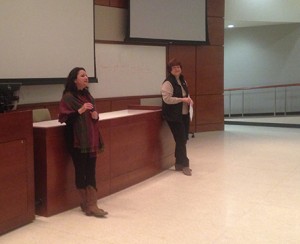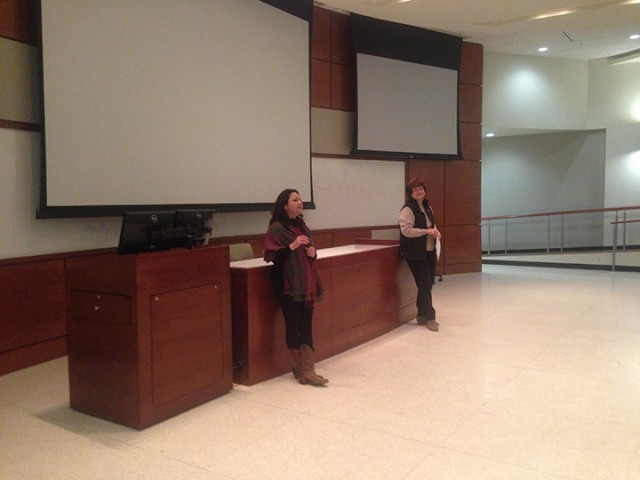
Rachel Leland | Staff Writer
By Rachel Leland
Staff Writer
Macarena Hernandez, professor of journalism, public relations, and new media, presented a documentary screening of “A Fragile Trust: Plagiarism, Power, and Jayson Blair at the New York Times,” which depicts a plagiarism scandal, Thursday evening in the Marrs-McLean Science Building.
Hernandez also answered questions in a panel discussion after the showing.
Former New York Times reporter Jayson Blair, the central character of the documentary, plagiarized a story Hernandez wrote for San Antonio Express-News in 2002 about a family whose son was reported missing in action in Iraq.
Hernandez participated in an internship program at The Times with Blair a few years prior and was chosen along with Blair to work full time at the newspaper. Hernandez said she accepted the offer, but did not end up working there because of unforeseen family commitments.
Blair, who suffered from depression and alcohol and cocaine abuse, joined The Times staff after completing a second internship.
When 9/11 happened, Blair did not return to his home in Brooklyn for three weeks because the newspaper was scrambling to cover stories. He added information he did not report on without his editors catching the acts.
In the documentary, Blair said he thought fear is what keeps most people from behaving unethically.
“If you cross that barrier where you know you won’t be caught, it becomes hard to self-regulate,” Blair said.
When the story broke, The Times fired managing editor Gerald Boyd and executive editor Howell Raines. Many alleged that Gerald Boyd, who was African-American, showed favor to Blair, who was also African-American.
“For me working as someone who had known Jayson Blair and Gerald Boyd and known they didn’t have that kind of relationship it was astonishing to see how quickly that narrative became truth,” Hernandez said.
Hernandez said she is concerned that the tight deadlines and fast pace of journalism may encourage more reporters to plagiarize and more editors to miss the unethical actions.
“The immediacy is valued over accuracy and unless we change that attitude I see more people fabricating or plagiarizing,” Hernandez said. “You see it in high schools colleges and universities. I think the only way is to hire people with a strong ethical and moral compass.”
Hernandez said she is also concerned that many newspapers have cut back foreign bureaus. The Dallas Morning News used to have an office in Cuba and countries in the Middle East, Hernandez said. Now instead of having 20 reporters cover a story, there are maybe one or two reporters on the ground covering events.
To counteract this, Hernandez said she recommends reading foreign newspapers to get a more thorough story.
“If I’m interested in a story, I read the New York Times take, I usually go to the Washington Post, then if its stories about Mexico I go to the Mexican newspapers and read the Spanish versions of those articles because I want to know how Mexican newspapers are covering the same story,” Hernandez said.



